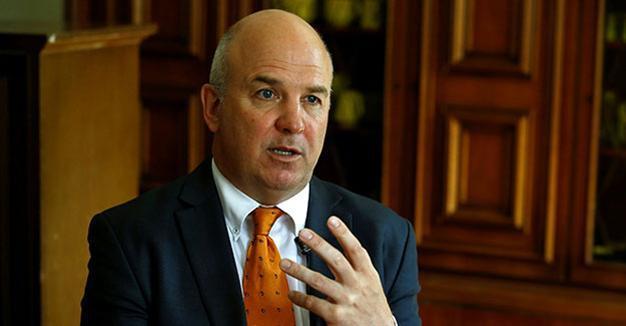Council of Europe ‘concerned’ over rights abuses under state of emergency
STRASBOURG

Human rights commissioner at the Council of Europe Nils Muiznieks speaks during an interview with Reuters in Warsaw, Poland June 15, 2016. REUTERS photo
Council of Europe Commissioner for Human Rights Nils Muiznieks has expressed “profound concern” over the state of emergency measures taken by Ankara following the failed coup attempt of July 15, stressing that a number of the measures were probably incompatible with the European Convention on Human Rights (ECHR) considering the tests of necessity and proportionality.The commissioner underlined that even though Ankara used its right to derogate from the ECHR under Article 15 and lawfully declared a state of emergency the European Court of Human Rights (ECtHR) still remained the “ultimate authority” in designating whether measures taken by Turkey during the period were in conformity with the ECHR.
“Already in the past, the ECtHR had had the opportunity to examine measures taken by Turkey during states of emergency, finding for example that, despite a derogation, holding a suspect for 14 days or more in detention without access to a judge was not necessitated by the exigencies of the situation,” Muiznieks said in a July 26 statement, defining it as “striking” that the first decree with the force of law allowed for detention without access to a judge for up to 30 days.
“This period is exceptionally long,” Muiznieks said, adding the scope of detentions was also problematic, as they could be applied not only to those with direct links to the coup attempt but to anyone in the fight against terrorism in general.
“The decree apply snot only in cases of membership or belonging to a terrorist organization, but also for contacts with such an organization,” the commissioner said, adding he was “worried” that administrative authorities foreseen in the decree have impunity, as administrative courts will not have the power to stay the execution of any of the measures.
In his remarks, the commissioner bluntly criticized the coup plotters, which Turkey’s government suggests were followers of U.S.-based Islamic scholar Fethullah Gülen, but added that derogations from guarantees should be confined to some groups.
“Such urgency and derogation from ordinary guarantees of due process might be necessary for certain groups, for example for military personnel in the light of the shocking events of 15 July, but perhaps not for others,” Muizniek stated, warning that the ECtHR may face an increasing number of cases from Turkey.
Giving the example of France, which also declared a state of emergency after consecutive terror attacks, Muiznieks urged Turkey to “put mechanisms in place in order to ensure safeguards against abuse and to preserve separation of powers and the rule of law.”
















